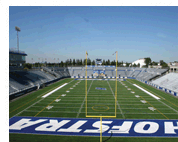A Man Who Was More Than A CoachJun 17, 2013Posted by james
In this professional sports town, many of you may not have heard about Jack Curran. He didn’t grab headlines, nor was he featured regularly on sports talk radio. That is until he passed away during March.
Jack was a coach for 55 years at Archbishop Molloy High School in Queens. He won 2,600 games while coaching several generations of baseball and basketball players. He won 22 Catholic school New York City championships – five for basketball and 17 for baseball. Four times, Molloy won championships in both sports during the same academic year.
It all started on a whim. Living in Massachusetts and working as a salesman, Jack read in the newspaper that St. John’s University, his alma mater, had hired Lou Carnesecca as an assistant basketball coach. Carnesecca had been the baseball and basketball coach at Molly. Jack decided to apply, and he was hired. He was getting ready for the 2013 baseball season when his body gave out at age 82.
Jack’s success at Molloy is well documented. A few other stories from his long life, though, may come as news to even those who knew him well.
During his playing days, Jack pitched for minor league teams in the Brooklyn Dodgers and Philadelphia Phillies organizations. As a player and later as a coach, he always stressed fundamentals, maintaining discipline and setting the performance bar at an extraordinarily high level for his players, for game officials and for himself.
Among his student-athletes were NBA players Brian Winters, Kenny Smith, Kenny Anderson and Kevin Joyce. Mike Baxter, currently with the New York Mets, also played for Jack, and he said Coach Curran really enjoyed helping young people. Baxter said that it didn’t matter to Jack if you played for him or not, and it didn’t matter if you needed help with a sports issue or if you were trying to find a job. He was there to help.
Jack was a devout Roman Catholic known for generous deeds far from the playing field. He even turned down the basketball head coach position at Boston College so he could remain close and care for his dying mother.
Not until his passing did many more sports fans come to know, albeit briefly, the success of a coach and the sweetness of a man. Huge stories that celebrated his life appeared in The New York Times and other newspapers. He was a topic of discussion on sports talk radio shows. He was mentioned during the CBS telecast of NCAA March Madness games. Upon learning of the passing of Coach Jack Curran, Coach Carnesecca said: “He won everything except World War III.”
He probably would have won that if it ever happened. More likely, he would have found a way to prevent it.
Jim









